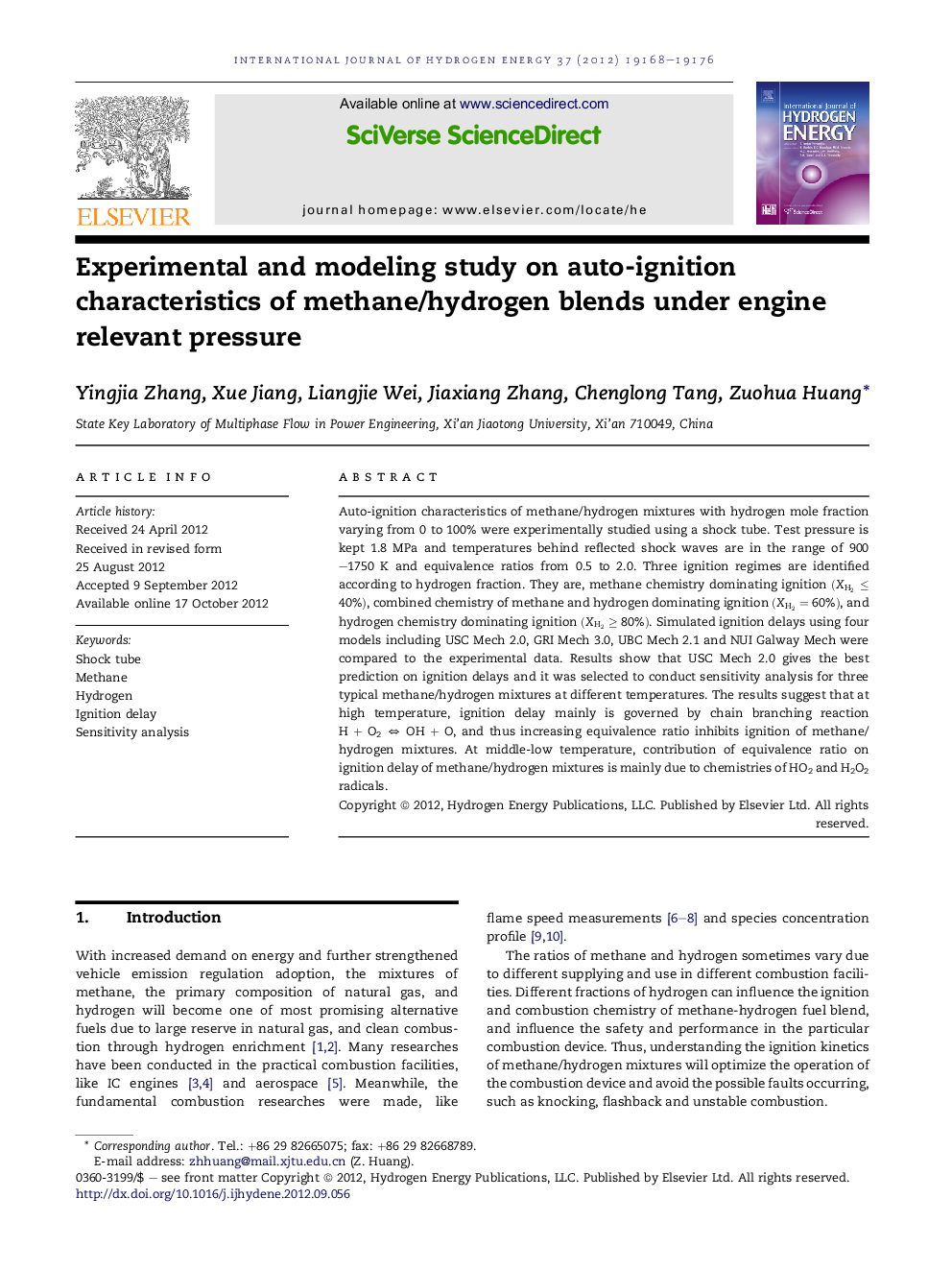| کد مقاله | کد نشریه | سال انتشار | مقاله انگلیسی | نسخه تمام متن |
|---|---|---|---|---|
| 1276125 | 1497545 | 2012 | 9 صفحه PDF | دانلود رایگان |

Auto-ignition characteristics of methane/hydrogen mixtures with hydrogen mole fraction varying from 0 to 100% were experimentally studied using a shock tube. Test pressure is kept 1.8 MPa and temperatures behind reflected shock waves are in the range of 900–1750 K and equivalence ratios from 0.5 to 2.0. Three ignition regimes are identified according to hydrogen fraction. They are, methane chemistry dominating ignition (XH2≤40%)(XH2≤40%), combined chemistry of methane and hydrogen dominating ignition (XH2=60%)(XH2=60%), and hydrogen chemistry dominating ignition (XH2≥80%)(XH2≥80%). Simulated ignition delays using four models including USC Mech 2.0, GRI Mech 3.0, UBC Mech 2.1 and NUI Galway Mech were compared to the experimental data. Results show that USC Mech 2.0 gives the best prediction on ignition delays and it was selected to conduct sensitivity analysis for three typical methane/hydrogen mixtures at different temperatures. The results suggest that at high temperature, ignition delay mainly is governed by chain branching reaction H + O2 ⇔ OH + O, and thus increasing equivalence ratio inhibits ignition of methane/hydrogen mixtures. At middle-low temperature, contribution of equivalence ratio on ignition delay of methane/hydrogen mixtures is mainly due to chemistries of HO2 and H2O2 radicals.
► Three ignition regimes are identified according to hydrogen fraction.
► Simulated ignition delays using four models were compared to experimental data.
► At high temperature, ignition delay mainly is governed by chain branching reaction.
► At middle-low temperature, HO2 and H2O2 chemistries affect ignition delay.
Journal: International Journal of Hydrogen Energy - Volume 37, Issue 24, December 2012, Pages 19168–19176